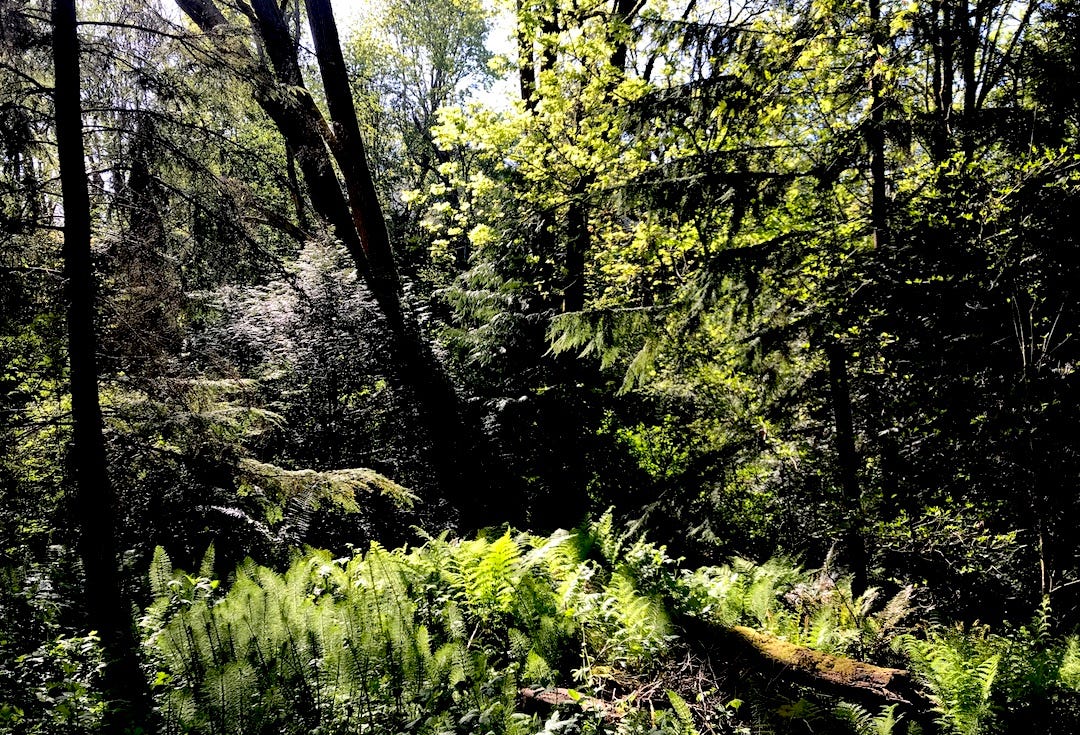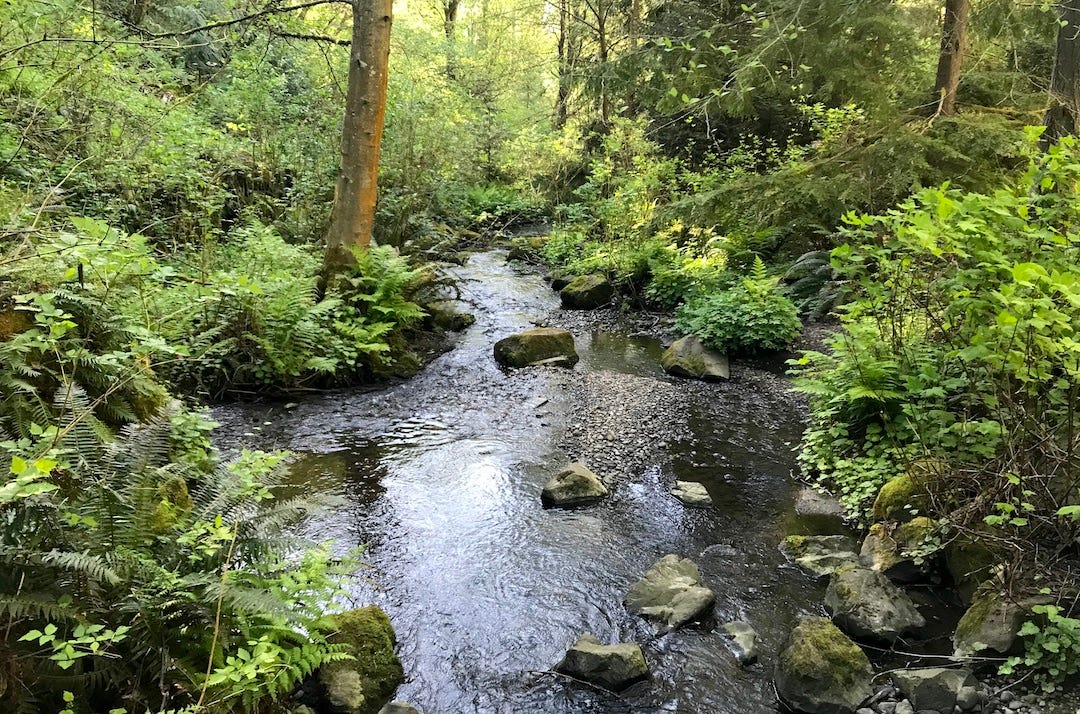Neighboring each other
I’ve never met Pádraig Ó Tuama, but I have such deep affection and gratitude for this Irish poet. If we ever do meet, I am sure I will try to say thank you and end up weepy.
You see, at a particularly low point of my life I put myself to bed every night by listening to him read his poem The Facts of Life. And I don’t know if it was the words, the soothing timbre of his voice, or the fact that he is both a poet and a conflict negotiator, putting effort into solving what feels hard and intractable. It all combined to make me feel like maybe there could be hope in a world that felt broken, and maybe I could have a place in it too.
See what I mean? I would totally go weepy.
These days I don’t have to lean on Pádraig’s words quite so heavily, but I look forward to them in my inbox, whenever his Poetry Unbound newsletter shows up, always welcomed, always making me think.
This most recent newsletter was about neighbors—or neighbours, if you are Irish. Pádraig wrote about funerals in Ireland and how the community gathers to mourn:
”The neighbours take over: tea, acres of lasagne, casserole, stew. Once, at a wake house, I saw a neighbour arrive with an extra kettle and a pack of toilet paper. The house was filled with mourners; it was a kindness to be so attentive to the needs.”He wrote more about grief and gathering—I’ll let you read it yourself, it’s lovely—but it was the question he asked that I keep thinking about.
When was a time that you’ve been marked by a kind of grief and someone neighboured you?
It’s the neighboured part that stops me—neighboring as a verb. How do we neighbor each other?
This is a question that comes easier in some cultures, where families have lived next door to each other for generations. I’ve cycled through rural Ireland, I’ve seen roots so deep they stretch to the underworld. I lived with a family in Japan who had occupied the same wood and paper house for nearly 300 years. Our friends are fifth generation on a small island in Canada; their Klahoose neighbors there are uncountable generations more.
But that is not the life I lead. Every generation of my family has been born in a different US state for more than 100 years; there were a few different countries before then. What are neighbors in a culture of transience?
But I think it’s more than just transience. I think US culture has been rigged.
We’re told to be independent, to pull ourselves up by our bootstraps, when some don’t even get boots!* We’re not meant to impose upon or bother others. Life is a tough row to hoe and you must do it alone.
There’s little interdependence here, few favors and kindnesses traded back and forth (rarely ever rolls of toilet paper). We’re told to do it all alone (not possible or healthy), and to outsource and pay for what we can’t.
But it’s not working. I don’t think it should. It’s not what we’re here for.
I’ll never forget the day I learned my neighbors across the street all had Covid—both parents, two very young kids. They had recently moved here, leaving family behind.
I immediately asked if there was anything I could bring them. Groceries? Were there medications to be picked up?
“I just ordered everything through Instacart,” she texted back.
I remember feeling deflated—I like these people, I like their kids, I even like their dog. I wanted to help.
This is what I think about now:
Had I done them this favor, it would have made me feel good (humans like to be helpful!). But it’s more than that.
If I had been able to help, it would have made me more comfortable asking for whatever I might need in the future. It would be a boon to feel like I could reach out (we’re all going to get sick, sooner or later). Our lives would be connected via threads of care and concern.
We would be neighboring each other.
Neighboring in our world today can feel like swimming upstream, but I think we deeply need it. So I’ll keep chipping away, keep reaching out to neighbors. Keep offering and asking for help.
I’m having some success, too. I’ll tell you more soon.
What I do know is that life feels better, happier, when there is a web there to reach out to. A web that might catch you if you falter or fall. We evolved living tribally; we need that.
What about you? Are you neighboring these days, or being neighbored?
If you want to be inspired and have your faith restored, check out the comments on Pádraig’s original post. He’s still making me feel like there is hope in the world, and that I might have a place in it too.
I hope your week is going well,
—Tara
This week on my other newsletter I’m sharing what community building looks like (hint: it includes tomatoes and herbs). Hop over to check it out.
• What I’m growing
Something else to enjoy: my books:
** I can’t use the phrase “Pull yourself up by your bootstraps,” without pointing out the cluelessness/cruelty. It seems that pretending we have an even playing field is part of our problems.







Once again, you have left me in tears. I am in a very solitary time in my life and I often feel lonely. I’ve often thought about how weird it is to spend so much time in close proximity to people who are strangers to me. I crave connection with those people, but am not sure how to go about creating those connections. I might just write a note to leave on people’s doorsteps, asking for more interaction, listing some things that I could use help with, and offering to help others when the need arises. <3
So well said! This idea of "neighboring" as a verb reminds me of all the talk of the loneliness epidemic. How much happier, healthier, and dare I say, gentler would we all be if we felt that sense of connectedness and interdependence??